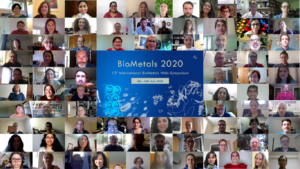 Alan Stewart is to be elected as a Fellow of the Royal Society of Biology (FRSB) in April.
Alan Stewart is to be elected as a Fellow of the Royal Society of Biology (FRSB) in April.
The Royal Society of Biology is a single unified voice for biology in the UK. The Society’s main aims are to: advise Government and influence policy; advance education and professional development; support its members, and engage and encourage the public interest in the life sciences.
The Society represents a diverse membership of individuals, learned societies and other organisations. Individual members include practising scientists, students at all levels, professionals in academia, industry and education, and non-professionals with an interest in biology.
For election as a Fellow an individual needs to have made a prominent contribution to the advancement of the biological sciences, and gained no less than five years’ experience in a position of senior responsibility.
 Stewart gave a Lunch and Learn talk for the British Heart Foundation based upon his research.
Stewart gave a Lunch and Learn talk for the British Heart Foundation based upon his research.



